Why Does My Dog Lick METAL? [Concerning]
Just like human babies, dogs love to explore the world with their mouths and tongues. While this may seem gross to some people, it’s actually a very important part of a dog’s sensory system. Their tongues are covered with thousands of tiny taste buds, which help them to identify different flavors and textures.
They also have a highly developed sense of smell, which allows them to take in even more information about their surroundings.
In addition to all the weird, wonderful, and sometimes downright gross things that dogs like to give a tongue bath to, metal is one of the strangest.
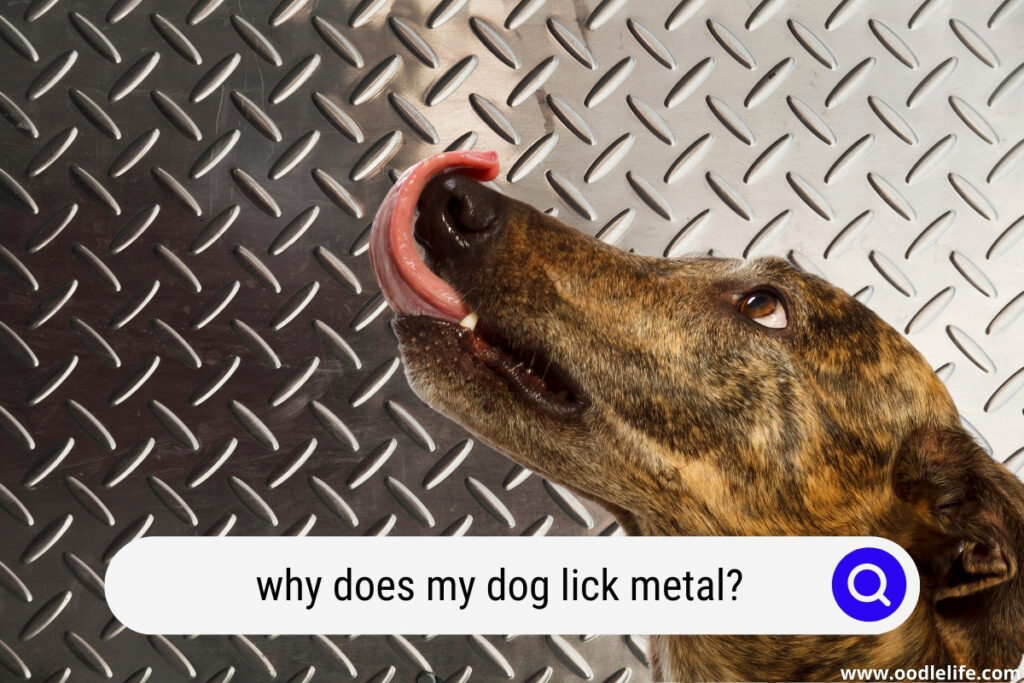
If you’ve ever wondered why your dog seems fascinated with the metal legs of your chair or furniture, don’t worry, you aren’t alone! In this blog post, we’ll look at why dogs lick metal, whether it is harmful to them, and what you can do about it.
Why Do Dogs Lick Metal?
When it comes to our dogs’ physical or psychological problems, we’ll need to consider their context. While out walking your dog or finding something new around the house, you might see them licking a metal object. It is not always a sign that something is wrong.
They may simply be using one of their senses to try and check out an unfamiliar object. Dogs explore their environment with all their senses, while we humans tend to only reserve our taste buds for food!
However, It may indicate there is another issue at play when our dogs are obsessively licking metal objects, so it is important to watch out for other symptoms in the context of this behavior.
You should seek the assistance of a veterinarian if you observe that your dog is behaving abnormally, such as becoming aggressive or suffering from digestive problems.
Here are some other reasons why your dog could be a metal licker.
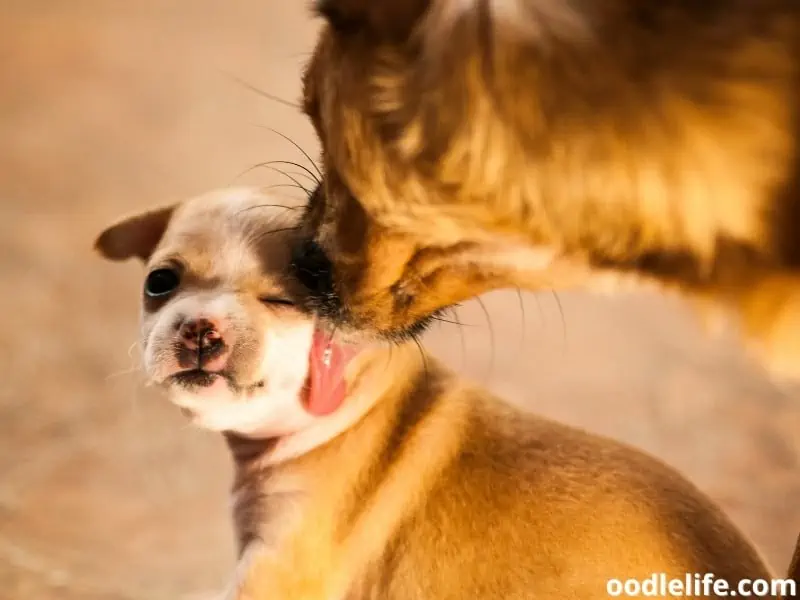
1. Curiosity
Using their highly developed sense of smell, dogs discover their surroundings and the objects within them. Nevertheless, if he still seems to be concerned with what the object is and whether it is edible, he may be curious as to its purpose.
Most likely, your dog is simply curious, and when a dog licks a metal object only once or twice, that means it’s probably only curiosity and not a sign of compulsive behavior. Dogs are unlikely to be drawn to metal by its own nature but rather by something they can smell or taste on it.
Dogs that are curious are usually normal, happy pups, so there is no need to worry about them. However, we recommend you observe your pooch closely and consult your veterinarian if he or she seems to be excessively licking, just in case an undiagnosed health problem is to blame.
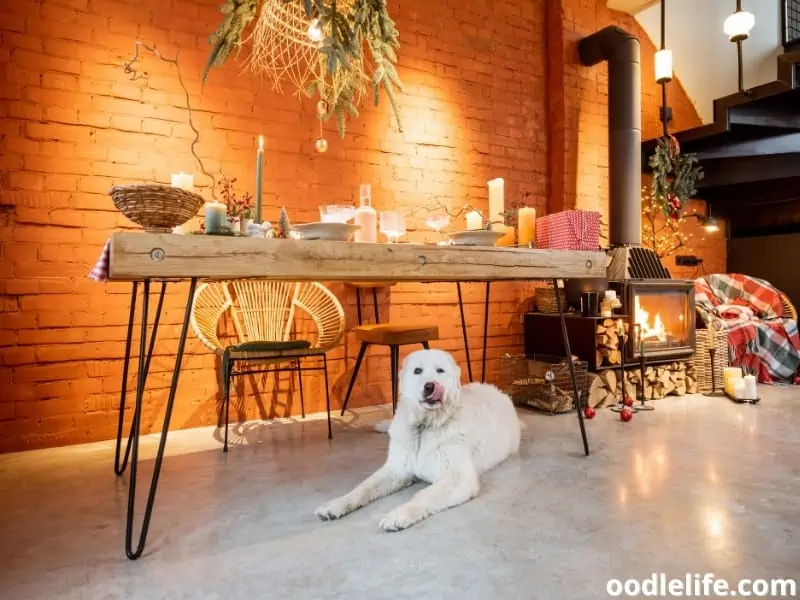
2. Nutritional Deficiencies
Metallic substances are not a part of a dog’s diet, and they are certainly not a part of a dog’s nutritional needs. However, a nutrient-deficient diet may cause your dog to lick metal objects in order to obtain the nutrients he needs.
In order to thrive and remain in good physical condition, your dog needs a variety of minerals. The substances in dog food include a range of chemical compounds such as:
- Potassium
- Sodium
- Magnesium
- Phosphorous
- Copper
- Iron
- Zinc
- Calcium
For dogs to be healthy, they do not require large amounts of those trace elements, It is however possible for animals to become nutritionally deficient if they are deprived of these trace elements.
In the long run, your dog might develop anemia if he doesn’t get enough iron in his diet. Loss of blood or issues affecting the duodenum may result in iron deficiency. A dog may also lick paint, sand, concrete, soil, and other materials if they are suffering from a nutritional deficiency.
3. Pica
Pica is a condition that can afflict both people and animals, characterized by the compulsion to eat non-food items.
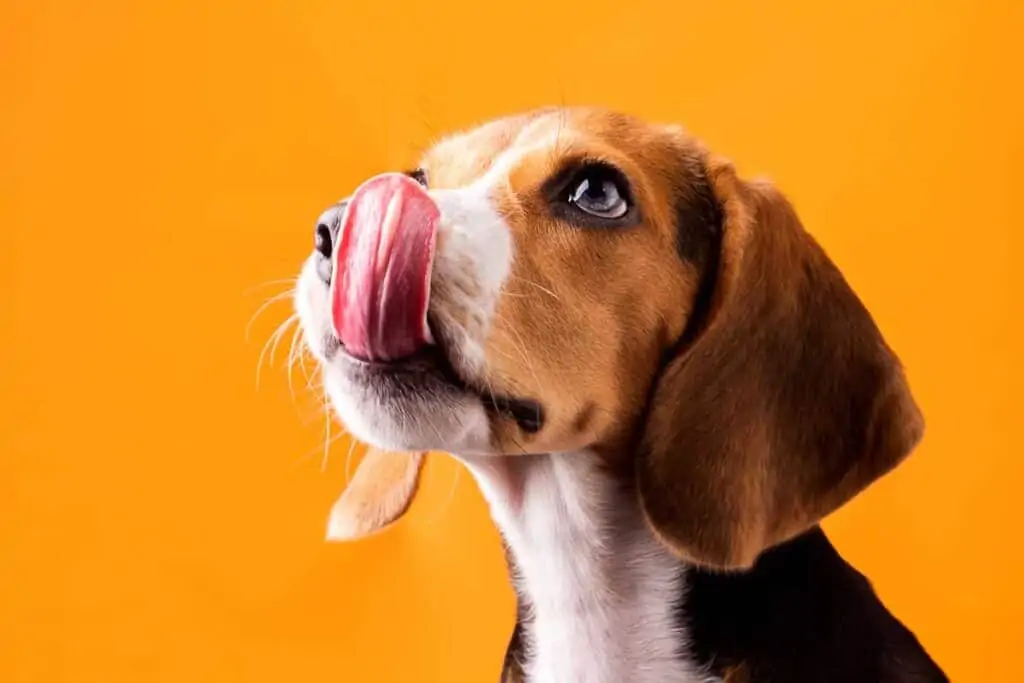
In dogs, pica often manifests as the consumption of dirt, stones, or sticks. Hey, at least it isn’t poop! Poop-eating, or coprophagia, is the most common form of pica, and a truly unappetizing habit.
While the occasional ingestion of these objects is unlikely to cause serious harm, persistent pica can lead to digestive problems, intestinal blockages, or other health issues.
The precise cause of pica is not fully understood, though it is believed to be linked to nutritional deficiencies, boredom, or anxiety. If your dog appears to be eating non-food items on a regular basis, it is important to consult with a veterinarian to rule out any underlying health problems and develop a plan to address the behavior.
Pica may be caused by several factors.
Stress – Stress-related behaviors, such as metal-licking, are common in stressed or troubled dogs.
Worms and parasites – An example of a parasite is a worm, which consumes nutrients in your dog’s digestive system, causing your pet to lack the necessary nutrition to remain healthy. If the dog is deficient in minerals or other nutrients, he may lick at the metal bars of his crate to replace them.
Consider asking your veterinarian for advice on a deworming program and treatment for your dog if you believe it has worms or other parasites.
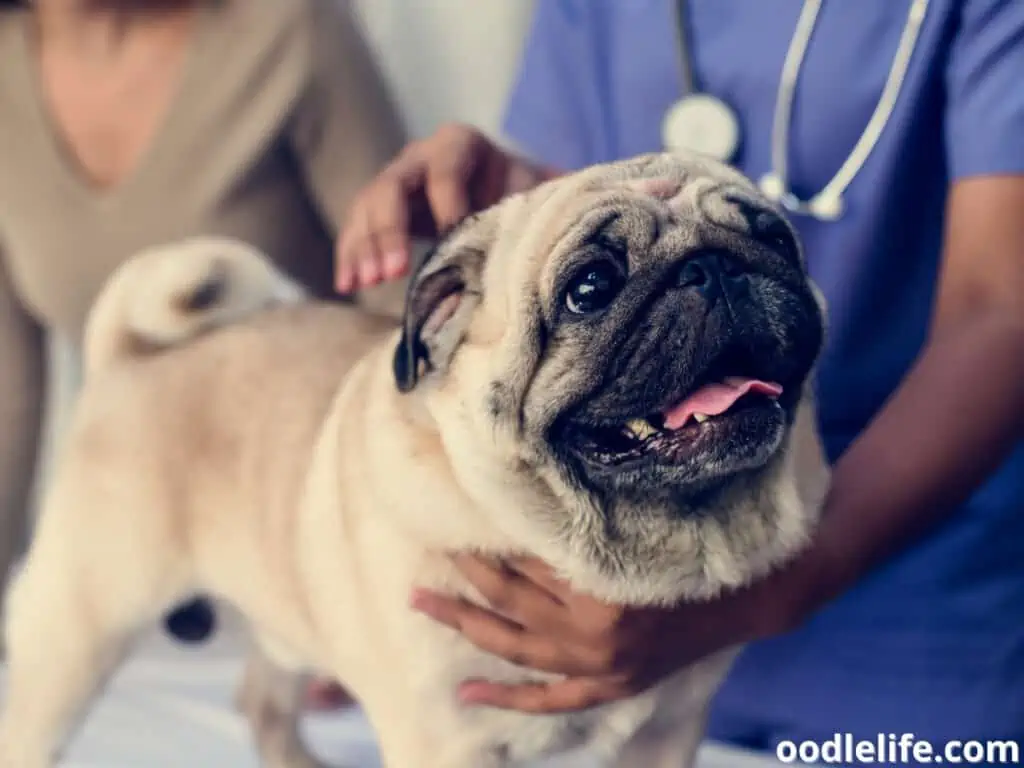
Medical Conditions – Pica has been linked to diabetes and inflammatory bowel disease. If your pet suffers from any of these conditions, your vet will advise you on the proper treatment.
Boredom – If a dog is locked in a crate for hours without any form of entertainment, that dog will quickly become bored and might begin to act as a destructive animal, such as licking its crate or chewing on it.
The best way to solve this problem is to keep your dog entertained and distracted while keeping him in his crate with plenty of safe, interactive toys.
Imbalances in the diet – The dog may become obsessed with things that are not normally eaten such as minerals, iron, and metallic-tasting items if there is an imbalance in his diet. A dog may develop an obsession with metal and develop obsessive-compulsive behavior as a result.
Depression – Dogs with depression often develop obsessive-compulsive behaviors, like licking metal, as a result of their sad and depressed state of mind.
4. Compulsive Disorders
There are several compulsive conditions that can result in metal licking and nervous behavior in animals, including pica and other compulsive disorders. Consider talking with your vet about a metal-obsessed puppy if you are worried about behavioral problems.
5. There Is Something On The Metal
It is perfectly normal for dogs to lick metal when they smell something potentially tasty on it.
A dog may consider tucking into the perceived food he can detect from spilled food that he detects on a metal table, tabletop, or barbecue. Taking the time to clean up spills will help you prevent this type of behavior.
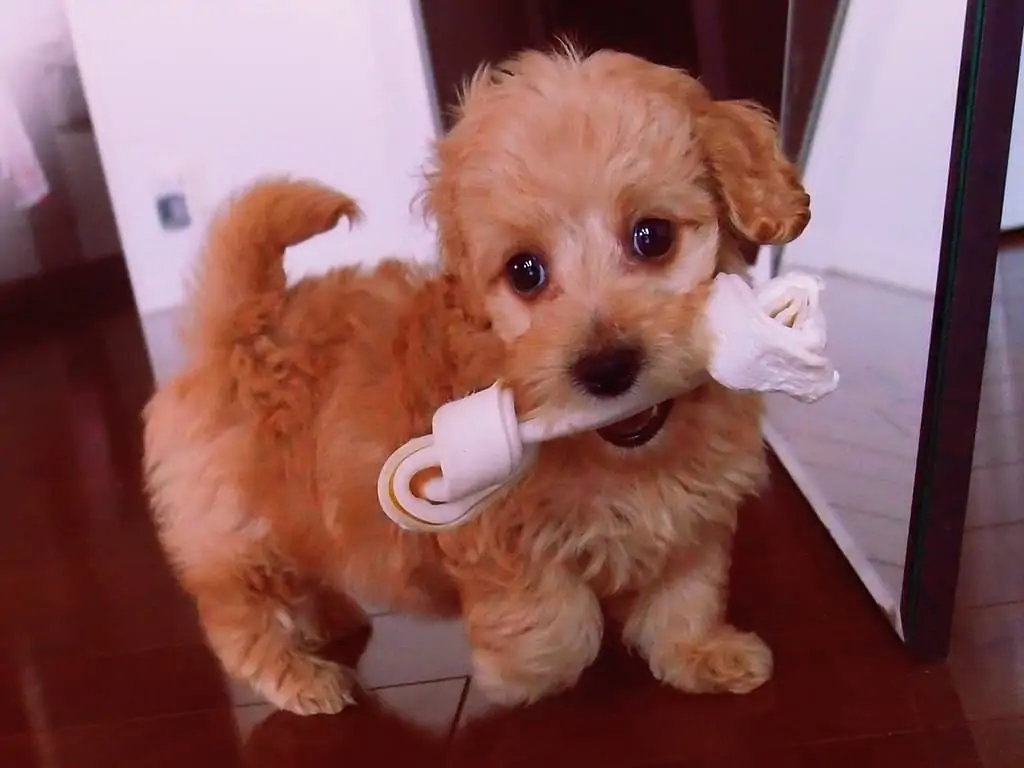
6. Paint containing lead
Most places do not allow lead paint because it poses a serious health risk due to its high toxicity. Still, there are many places where you can find lead paint. Due to the fact that lead paint has a similar taste to strawberries, dogs are likely to start licking anything with lead paint they come in contact with.
Of course, you should stop this behavior immediately. Dogs can also suffer from lead poisoning, which in severe cases, can lead to vomiting, diarrhea, seizures, and death.
If you suspect that your dog may have ingested lead, it’s important to take them to the vet immediately. There is no cure for lead poisoning, but early treatment can help to minimize the symptoms and give your dog a better chance of survival.
How Can You Stop Your Dog From Licking Metal?
While your little metal-licker is likely to be a balanced, happy dog that is simply exploring the world with his mouth, there are some instances where you might want to nip the behavior in the bud before it becomes obsessive-compulsive.
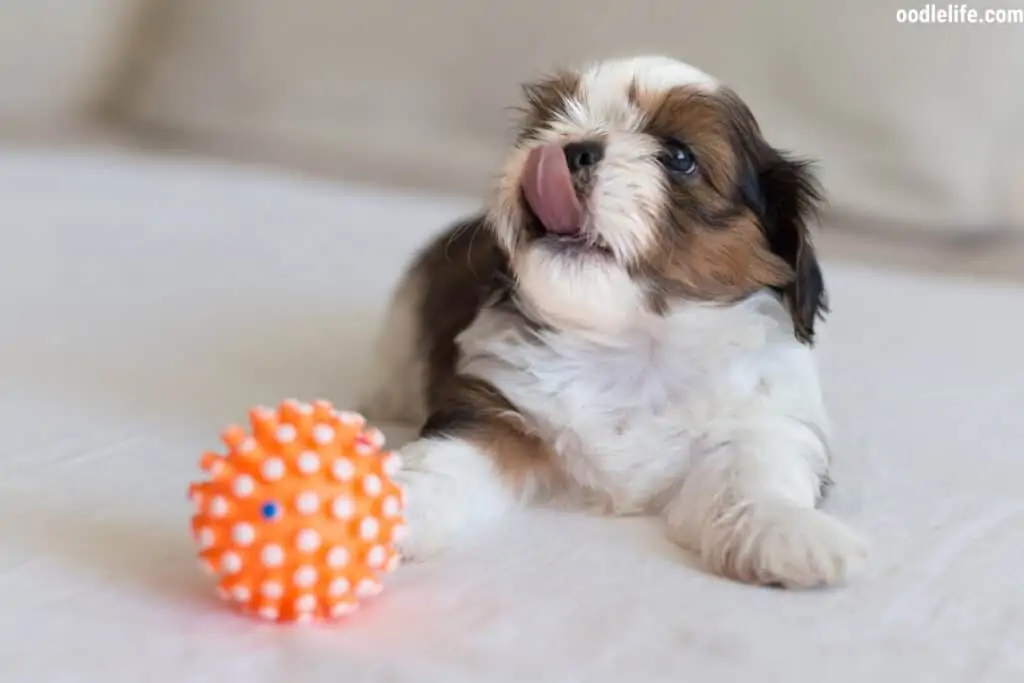
Removing The Metal Objects
When you find that your dog likes to lick a particular item or piece of metal, restrict access to that item. Make sure your dog can’t get access to inorganic metal objects you can’t move by blocking them with (non-metallic!) furniture.
Making the metal taste horrible is probably the easiest method of convincing them not to do so. Choosing an item that is pet-friendly and won’t damage the metal but that your dog will abhor is key.
Bitter apple is a great choice for this. Dogs will hate the spray, but it won’t hurt them or the metal. Lemon juice might work, but it might corrode the metal finish, so you may want to choose a commercially prepared product.
Distraction Techniques
You can keep your dog engaged by providing him with lots of interactive toys. Training the dog’s basic obedience skills can prevent him from becoming obsessed with metal licking and keep his brain busy.
Every time you see your dog going for a metal object, try redirecting his attention to his toys or dental sticks, praising and rewarding him when he diverts his attention.